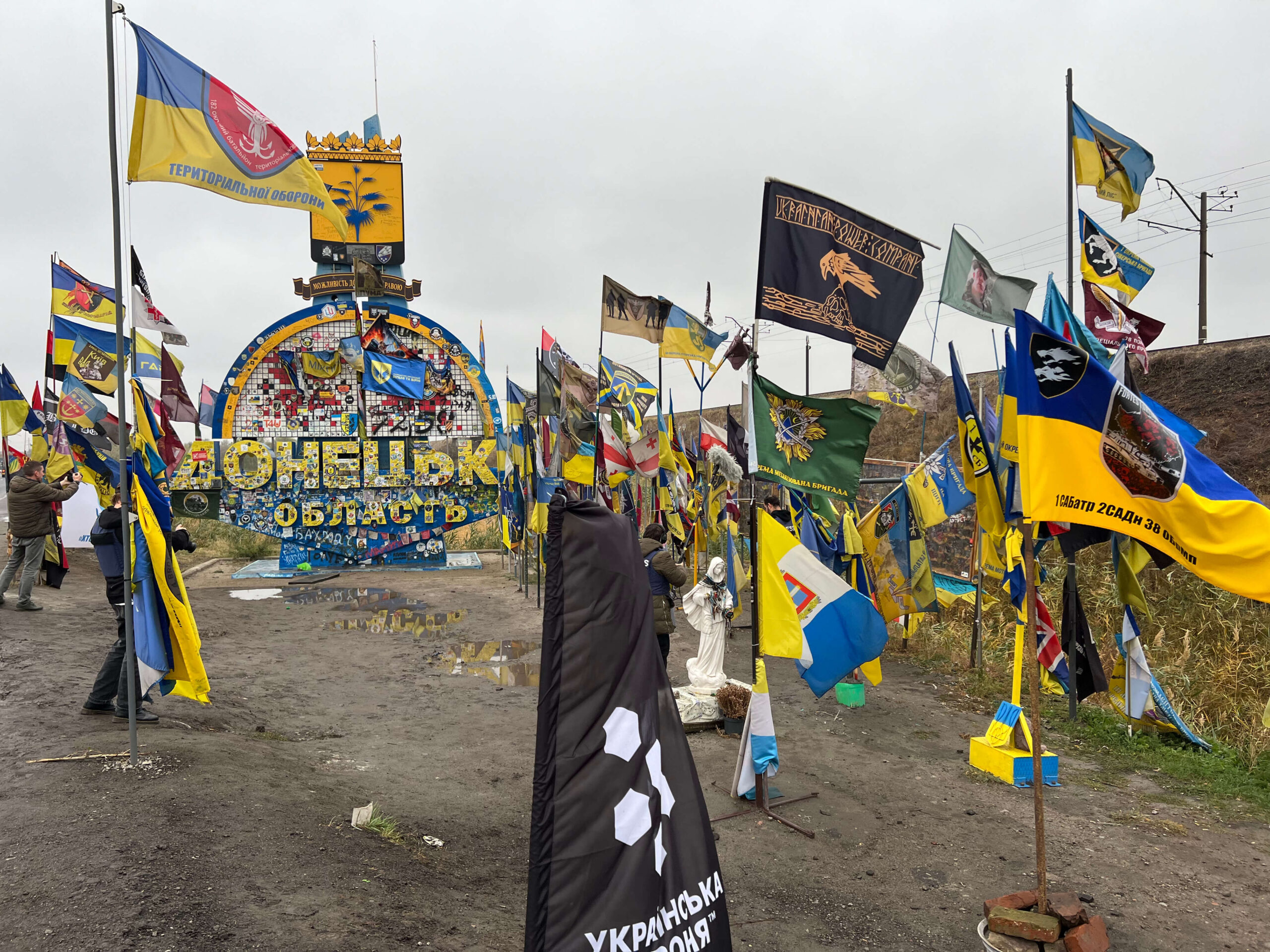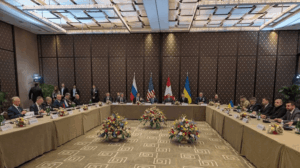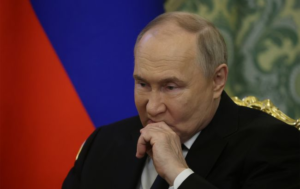NABU probes Fire Point over alleged drone overpricing and Zelenskyy ties as questions grow about Mindich links and “Flamingo” missiles. Kasyanov versus Zelensky and Fire Point.
Yuriy Kasyanov, a major in the State Border Guard Service of Ukraine and an expert in aerial reconnaissance since 2015, stated that the decision to disband his unit was allegedly made by President Volodymyr Zelenskyy. According to Kasyanov, the reason was that he was a “key witness” in the case involving the company Fire Point (the manufacturer of Flamingo missiles and drones).
“The decision to liquidate our unit was made by President Volodymyr Zelenskyy because I am a whistleblower in the Fire Point case and a key witness. On October 2, I gave testimony to NABU detectives. On the morning of October 3, the unit’s disbandment was announced,” Kasyanov wrote in his Facebook post. It was reported by Radio Svoboda.
Yuriy Kasyanov is requesting protection as a witness.
NABU confirmed that Kasyanov was indeed questioned “in one of the proceedings.”
Fire Point and Tymur Mindich
In August, The Kyiv Independent reported that NABU was investigating the activities of Fire Point regarding possible overpricing of drones and the volumes supplied to the Ministry of Defense. Journalists from the outlet claimed that their sources confirmed links between representatives of this company and businessman Tymur Mindich, a friend of Volodymyr Zelenskyy.
Later, NABU denied this information.
Meanwhile, the chief designer of Fire Point, Denys Shtilerman, told ZN.ua that NABU was not investigating his company, and that the case concerned officials from the Ministry of Defense and the State Service of Special Communications and Information Protection.
So what is really known about the company that manufactures Flamingo missiles? Is there any connection to President Zelenskyy’s inner circle? And to the so-called “Mindich tapes”?
Find out more in the Svoboda Live.
Vlasta Lazur: The company that produces the Flamingo missile and long-range drones has come under the scrutiny of NABU detectives. The company in question is FirePoint.
According to media reports, NABU is investigating whether the company may have inflated prices for its products. In addition, the media claim that NABU is looking into a possible connection between FirePoint and the president’s friend Tymur Mindich, to whom we have devoted several previous episodes.
Now, in a way, this is a continuation of that story. This is Svoboda Live, and my name is Vlasta Lazur.
So, FirePoint is a Ukrainian company that produces long-range drones and Flamingo missiles. In a recent interview with ZN.ua, the company’s chief designer, Denys Shtilerman, said that FirePoint produces two to three Flamingo missiles per day.
By the way, just a few days ago, Volodymyr Zelenskyy stated that Ukraine is already using Flamingo missiles to strike targets deep inside Russia.
As for long-range drones, earlier The Kyiv Independent reported that last year FirePoint sold drones to the state worth more than 13 billion hryvnias. That’s nearly one-third of all annual drone purchases made by the Ministry of Defense.
We will return in detail to The Kyiv Independent publication later today, as it contains many interesting details. But the main point is this: journalists reported that NABU is investigating the activities of the company. In particular, detectives are checking whether FirePoint inflated the cost of components or the number of drones supplied to the Ministry of Defense. They are also reportedly investigating a possible connection between FirePoint and Tymur Mindich, co-owner of the Kvartal 95 studio, which was once founded by Volodymyr Zelenskyy.
FirePoint denies that such a case exists and even at one point demanded that journalists retract this information. However, a new development has emerged in this story: Yuriy Kasyanov, a Border Guard Service officer and aerial reconnaissance specialist who previously accused the country’s political leadership of disbanding his unit, has stated that he gave testimony to NABU detectives in the FirePoint case — and that this, allegedly, was the reason his unit was dissolved.
“The decision to liquidate our unit was made by President Volodymyr Zelenskyy because I am a whistleblower in the FirePoint case and a key witness. On October 2, I gave testimony to NABU detectives; on the morning of October 3, the unit’s disbandment was announced. I ask NABU to provide protection for me and my family under the witness protection program.”
NABU confirmed that in mid-September, Yuriy Kasyanov was indeed questioned as part of one of the proceedings that began earlier this year. As for protecting Kasyanov as a witness, NABU stated that they will assess possible threats to his life.
And now, returning to the drone and missile manufacturer FirePoint — the company whose activities we’ll be examining today — joining us live is Yuriy Kamelchuk, Member of Parliament, representative of the Servant of the People party, and deputy member of Ukraine’s permanent delegation to the Parliamentary Assembly of the Council of Europe.
Yuriy, welcome!
Yuriy Kamelchuk: Hello, good evening.
Vlasta Lazur: You just heard Officer Kasyanov’s statement. Does his claim sound credible to you — that he gave testimony regarding the FirePoint company, and that his unit was immediately disbanded afterward?
Yuriy Kamelchuk: It’s difficult for me to testify to the truthfulness of this, because I haven’t seen any records and haven’t spoken with the NABU detective. Moreover, I think they wouldn’t disclose such information anyway, since if an investigation of this kind is underway, details are unlikely to be shared even with members of parliament. The only thing I know is that a criminal case was opened back in February this year regarding possible violations involving, I believe, six companies. And perhaps it was in connection with this that Yuriy Kasyanov was questioned. That’s all that’s known at the moment.
Vlasta Lazur: Well, FirePoint says there are seven companies. But six or seven — maybe. Look, the media also report that this company received perhaps the largest amount of funds from the Ministry of Defense budget — it’s one of the biggest drone suppliers for the Ministry. And here’s the question: is this a success story, a successful case of a company that literally built itself from scratch in a short time — because before the full-scale war, nothing was known about it — or are there actually grounds to believe that someone may be helping this company secure such a large number of contracts?
Yuriy Kamelchuk: As a person, I can look at this — let’s say I set aside my status as a member of parliament for a moment and speak to you more as a journalist or simply as someone observing from the outside. There are two sides to this.
First: the fact that we have such drones is very good. As far as I understand, and as journalists have also mentioned, this company produces around 30% of Ukraine’s strike drones. The fact that they can do this is a big plus for us, because they really destroy many enemy units, intercept other drones, and so on. From this perspective, they’re doing a good job.
Now, can a company grow that fast? Speaking as someone who used to be in business — yes, it can. Can it develop in such a short time and have truly unique technologies? Yes, it’s possible to find engineers who know how to do something a little better. And startups — as the media now call this company — can emerge that way. The growth from a few dozen to a few thousand employees in a year or a year and a half, however long they’ve been operating, is also quite realistic. If they received certain contracts for a specific quantity, if the Ministry of Defense is satisfied with the technical specifications, if the products passed testing — that’s the positive side.
Could someone be helping them? In our country, anything is possible. Are tenders being manipulated? I don’t know — that’s for law enforcement to determine. Probably, they should investigate to see whether prices are being inflated and so on. Usually, such investigations are about overpricing or fake deliveries — things that exist on paper but not in reality. Maybe there are other issues too. But I’ll repeat: from the point of view of their usefulness — that’s a plus. Whether there are abuses — let law enforcement check.
Vlasta Lazur: Well, as I understand it, law enforcement is indeed conducting checks. Perhaps the case doesn’t directly concern FirePoint, as the company itself claims. But look — earlier, The Kyiv Independent also wrote (and we’ll discuss this in more detail later with the authors of that publication) that NABU is investigating a possible connection between the president’s friend Tymur Mindich and FirePoint. The company, of course, denies any such link. But what do you think? Again, considering that the company became successful and well-known in such a short time.
Yuriy Kamelchuk: It’s difficult for me to draw conclusions here beyond what I can see, let’s say, on public databases that verify legal connections — for example, YouControl. If you look up FirePoint there or Tymur Mindich, no connection appears.
Is it possible to hide the real founder? It is, in theory — if, for instance, a company’s director or accountant had some previous legal or business ties to another person. Again, that’s a question for NABU investigators and others — whether they will uncover such a connection or not.
Another point — and to be honest, I don’t quite understand. I understand that this topic is sensitive, and that Mr. Mindich’s figure is a “hot” one. But personally, in this particular case, I don’t quite see it clearly. Even if, hypothetically, Tymur Mindich is somehow involved — you mean that this could suggest possible abuse or favoritism, right? Am I understanding you correctly?
Vlasta Lazur: The suspicion about abuse, favoritism, if there were indeed inflated prices. FirePoint’s products are expensive. If prices were inflated, if there were financial abuses connected to authorities, and so on.
Yuriy Kamelchuk: Look, I’m not Mr. Mindich’s lawyer. Yes, I’m not his lawyer. But again, even if it turns out he is a co-founder, if there’s no abuse, what difference does it make who the co-founder is, as long as the result benefits the Armed Forces of Ukraine? If there is abuse, that’s another matter — not really for me to decide.
Vlasta Lazur: Just to clarify, for example, first of all, Mindich doesn’t comment, and FirePoint denies any connection to him. But the media write that NABU is investigating a possible link. So, am I understanding correctly: if a co-owner or someone connected to the company is a friend of the president, of a company that covers a third of the drone needs for the Ministry of Defense, there’s nothing wrong with that, right?
Yuriy Kamelchuk: In my opinion, if there’s no abuse of power, no fake deliveries, and all that NABU or SAP investigate, then personally, well — excuse the analogy — it makes no difference to me who founded a particular supermarket if the products are good, I can use them, and no one is harmed. Let anyone be involved, as long as it’s not Russians — or, let’s say, Putin.
Vlasta Lazur: Well, why simply hide it then, if, for example…
Yuriy Kamelchuk: That’s the second question. Indeed, this is already a question for more economic investigations. If someone has an interest in a certain enterprise and their dividends are not withdrawn illegally, then that is, of course, an economic crime.
Vlasta Lazur: And overall, tell me, please, is it possible that, hypothetically, even not taking FirePoint, any company that produces weapons, missiles, drones, can we even theoretically assume that its ultimate owner or beneficiary is unknown? Yes, theoretically is it possible?
Yuriy Kamelchuk: Absolutely. I believe any lawyer will confirm it to you, any entrepreneur who has dealt with large sums. I can tell you: if the person, conditionally speaking, on whom a certain company is registered, has, conditionally speaking, the right to contribute a large authorized capital, then you might not actually know who the beneficiary is, or the business reports, or some property, and so on. As far as I understand, the founding capital of the FirePoint company is 12 million. I don’t know anything about other companies, I don’t know. Therefore, this is not some insurmountable sum. But the working capital afterward — that is indeed the question. Here the question is either, I don’t know, for the Tax Service or the BEB (Bureau of Economic Security), or whoever, if there are indeed abuses, to clarify this picture.
Vlasta Lazur: Returning to the question we started with. We quoted the post of officer Yuriy Kasyanov, and he claims that he is a whistleblower and a witness in the FirePoint case, that he gave testimony to the NABU, and allegedly, his unit was disbanded after that. We, by the way, addressed this question to the Office of the President, but they didn’t respond to us. But if such a statement is made, if there are reports in the media—by the way, Yuriy, I want to tell you that even individual deputies, for example Yaroslav Zheleznyak, say that there indeed is a case in the NABU regarding FirePoint, and that Mindych might somehow be involved. That is, if there is such information from various sources, including from opposition deputies, is this a reason, I don’t know, to create a Temporary Special Commission (TSC) in parliament or somehow invite someone to the Verkhovna Rada for a report: the president, or Timur Mindych, or someone else? Well, is this information significant enough for parliament to take an interest in it, or not?
Yuriy Kamelchuk: Yes and no. From the point of view that this involves a large amount of public funds, it is indeed important. If there are no documented facts of direct violations, I don’t think there’s a reason to conduct an investigation right in the Verkhovna Rada. But if we actually see some documented, confirmed facts… Again, we take into account the question you asked: if, conditionally speaking, the founder is different in this or that company, that’s more of a question for the Tax Service—who pays taxes or who doesn’t pay taxes. That’s the Tax Service, the court, I don’t know who else deals with this. It’s not a question for the Verkhovna Rada. If we see abuses on a large scale, then it will probably be worth summoning the head of the Ministry of Defense, the head of some law enforcement agencies, and indeed create at least a temporary investigative commission to find out how this became possible, conditionally speaking, if there was rigging of auctions or some other things: tenders, auctions. Because such situations are possible. Therefore, we will probably wait for the results of some investigations, perhaps independent ones, perhaps journalistic ones, but not just words that there might be a connection and possible abuses. Because virtually then, you know, one can come to anyone and tell a similar story. Even once, you know, excuse me for this example, but people’s deputies were afraid at the beginning of this cadence that, conditionally, someone might come to court and say: “I lent him $50,000, and he doesn’t want to give it back.” This is not fixed in any way. And there will already be an investigation and maybe even a suspicion. In such a case. However, then the NACP informed us that without documentary evidence, this is practically not possible.
Vlasta Lazur: Do you remember, you even joined us on air about this matter, when those cardboard protests took place, when there were, to put it mildly, some misunderstandings between the NABU and the SBU? And at that time, anti-corruption experts said that the Office of the President was settling scores with the NABU in this way. And in this context, we talked about the so-called “Mindych tapes”: allegedly, NABU detectives documented the president’s friend, perhaps even in that apartment on Hrushevskoho Street, where the president himself also visited. And you know, when this story with FirePoint arose, and when the media wrote that NABU was investigating Mindych’s possible connection to FirePoint, I thought: maybe the tapes were about this context? Maybe this case is the one? Didn’t you think about that?
Yuriy Kamelchuk: Frankly, I don’t try to draw any conspiracy theories.
Vlasta Lazur: I’m just trying to put together the puzzle of one overall picture. It really comes in fragments from different sources. And we need to figure it out here.
Yuriy Kamelchuk: Let’s truly, if we step into some kind of superposition from the side, look at the situation. Your theory may have a place if we are talking about, conditionally speaking, a struggle between the bodies or institutions of power and anti-corruption bodies specifically in Ukraine. That is, provided, indeed, that the anti-corruption bodies are truly independent. I really want to believe in this. Unfortunately, some facts known to me don’t quite confirm it. Therefore, I cannot state one hundred percent that their work is always conscientious. So one wants to believe that this is still not the case, and that society is not observing some theatrical or some other scenario of an internal war being played out between those institutions that should be cooperating.
Vlasta Lazur: And I didn’t understand your answer.
Yuriy Kamelchuk: I don’t know. If briefly.
Vlasta Lazur: You don’t know? Okay. Nevertheless, we set ourselves the goal of investigating this further. Thank you very much! Yuriy Kamelchuk, Member of Parliament, representative of “Servant of the People.” Thank you.
Yuriy Kamelchuk: All the best.
Vlasta Lazur: So, we continue to acquaint you with the company FirePoint. For those who still don’t know about the activities of this company, well, and this, again, is a reason for us to tell you a little more about what the media are writing and what possible claims law enforcement officers have against this company.
The fact that the NABU is investigating the activities of the company FirePoint is actually not new information. The Ukrainian English-language publication, Kyiv Independent, wrote about this at the end of August, citing sources familiar with the case.
According to the publication’s sources, NABU is checking whether FirePoint inflated the cost of components for drones. Last year, the company sold drones to the state for over 13 billion UAH, and this constitutes almost one-third of all drone procurements by the Ministry of Defense for the year, the publication states. So, let’s just note: FirePoint is one of the largest suppliers of drones for the Ministry of Defense.
Furthermore, the Kyiv Independent reported that the company’s heads, Yehor Skalyga, Iryna Terykh, and Denys Shkilerman, had not previously worked in the defense sector. Before the war, they were involved in film production and charity. The company was registered as “Centrocust,” and in February 2023, it came under the ownership of Yehor Skalyga and changed its name to FirePoint. That is, in 2023, the company changes its name to FirePoint and already in 2024 becomes a major supplier of drones.
The Kyiv Independent writes that in 2025, the company expects contracts for over $1 billion.
And one more extremely important episode of this material is the following, which we have already partially discussed: NABU, according to journalists, is investigating not only the possible inflated cost of drones but also FirePoint’s alleged ties to the president’s friend, Timur Mindych, writes the Kyiv Independent.
“According to three sources, the current NABU investigation is connected to the fact that the ultimate beneficial owner of the firm is Timur Mindych—a businessman who is a co-owner of the Kvartal 95 TV studio, founded by Zelenskyy.”
While the investigation is ongoing, no physical or legal persons have been charged.
“Rumours that FirePoint’s drones are connected to Mindych are quite active, and I am completely convinced that this version of events is true,” a government source familiar with the investigation materials told the Kyiv Independent. NABU did not respond to any questions about Mindych.
And what’s interesting is that when the Kyiv Independent published this material, the publication’s editor-in-chief, Olga Rudenko, reported that the management of the FirePoint company had resorted to threats against the editorial office. The company’s head, Yehor Skalyga, according to Olga, sent a letter in which he demanded a denial of the information about the NABU investigation and even promised to file a complaint against the journalists with the SBU.
Now we will discuss all this in detail once again. Joining the broadcast is Kollen Post, a defense journalist from the Kyiv Independent. I welcome you to our broadcast! Good evening.
Kollen Post: Greetings, thank you very much!
Vlasta Lazur: You know, this is the first time on this broadcast that we are so thoroughly investigating and telling our audience about one specific company—a manufacturer of missiles and drones. I read, particularly in your material and in other publications, that before the war, this company was engaged in film production and charity work.
Kollen Post: Not the company, but the man who manages the company.
Vlasta Lazur: The people who currently manage this company were engaged in film production and charity, and the company itself had a different name—”Centrocust”—and it also had nothing to do with weapon production?
Kollen Post: Yes, exactly.
Vlasta Lazur: I also read that this company “Centrocust” was engaged in the production of toys, the production of games, and toys.
Kollen Post: Something like that. But I myself knew very little about “Centrocust.” Well, they rebranded in January ’23.
Vlasta Lazur: And then instantly, literally within a short period of time, the company became one of the largest producers of drones and missiles, right?
Kollen Post: Yes, yes, almost immediately.
Vlasta Lazur: Immediately. Listen, is this a success story where intelligence, innovation, or something else prevailed, or is some other explanation possible here? I understand you have been researching defense topics for many years. Have you seen anything similar before?
Kollen Post: Well, similar to this, no, no. But I think that during a war, many things can happen in a case like this. But yes, the innovation here is very subtle. And at the same time, I think that yes, the facts speak for themselves: that in principle, that man, Yehor Skalyha, he, in principle, well, it’s unlikely that he invented the best missile in the world, the best drones in the world. These were, in principle, not his products.
Vlasta Lazur: But they have a designer there, in addition to this Yehor Skalyha.
Kollen Post: Iryna Terykh and Denys Shkilerman.
Vlasta Lazur: This Denys Shkilerman, we quoted his interview and will quote it again today. I understand that he is the chief engineer. Maybe he invented it. There are three of them. Maybe one of them invented “Flamingo”?
Kollen Post: Well, maybe, yes, probably, maybe. In principle, my article talks about the FP-1 now being operational. But it seems that the state gave this company opportunities that other companies did not have at the time.
Vlasta Lazur: The state gave this company more opportunities than others? How do you explain that?
Kollen Post: Yes, investment.
Vlasta Lazur: How do you explain that?
Kollen Post: That, yes, that will be a different material, I think. But yes, there will be more material on the topic of the company.
Vlasta Lazur: Okay, let’s just try to understand. You wrote that NABU is investigating the activities of this company regarding price overstatement and also regarding the company’s connections with people from the president’s inner circle.
Kollen Post: Yes, yes.
Vlasta Lazur: Does the thesis, the theory, that it was precisely through connections with people from the president’s inner circle that the company began to receive… seem plausible to you?
Kollen Post: Yes, it looks that way. Well, I, in principle, I don’t have the right to look at the accounts. I myself couldn’t say that there are connections, well, financial ones. Well, you need to have the legal right to the accounts to confirm this. But yes, it seems to me that something is wrong with this company, and most likely, it was through that political connection.
Vlasta Lazur: You are the author of this large article, ultimately, regarding which the company later had claims. We will talk about this now. They forced you to refute all this information. But when you spoke with the competitors of this company or, I don’t know, players in the market, what is the company’s reputation, in principle? From a production point of view, is their product high-quality or not very much? Is it too expensive, or does it cost a normal amount?
Kollen Post: Well, as I said, in principle, the FP-1 now works normally. But, well, a year ago, a year and a half ago—no. So, the reputation depends on them receiving more financial support. And yes, and at the same time, there are some, I don’t know, suspicions towards the company from competitors, from market players as well.
Vlasta Lazur: FP-1—I will translate for our audience—is a long-range drone, named FP-1, which is used to strike various targets deep within Russia. The company produces these drones and also produces the “Flamingo” missile. You said that, well, allegedly something is wrong with the company, and that there were large investments in it by the state at the beginning. And when you published this material, claims were made against you as a media outlet. You were threatened.
Kollen Post: Yes, yes, they threatened to file a complaint with the SBU. Now we don’t know exactly if such a complaint was filed, but the company’s head turned out to have… well, a guy from the SBU was in his apartment. But the SBU themselves said that no, this was not an investigation against the Kyiv Independent, it was a different investigation about a person who previously lived in that apartment. But yes, at the same time, it is very, very difficult to substantiate the facts of this case.
Vlasta Lazur: For this article, you spoke, as far as I understand, with people from the government, with people from NABU. That is, are you confident that there are grounds to believe that the manufacturer has some connection with the highest political leadership? Are your sources confident in this?
Kollen Post: Well, I wouldn’t want to burn my sources, I would also like to say that NABU had no involvement in the beginning of the article. But yes, what my sources say is that yes, there are such political connections.
Vlasta Lazur: And you also write in your article that NABU will be examining the prices of FirePoint’s products, suggesting that they might be too high?
Kollen Post: Yes. Basically, there’s a 25% limit on the production cost of a drone — that’s the maximum profit margin. It’s an interesting rule in the drone industry. But there are ways to bypass such limits. In principle, you can overprice the components you buy. There are also other methods and interesting schemes through a subsidiary company. These possibilities exist in the industry.
Vlasta Lazur: Let me see if I understood correctly. The state allows drone manufacturers to earn no more than 25%, but there are loopholes to increase that profit?
Kollen Post: Yes.
Vlasta Lazur: And NABU is now going to investigate whether this company is earning more than 25%?
Kollen Post: Yes. Well, it’s already under investigation.
Vlasta Lazur: Already being investigated.
Kollen Post: By the way, there are other companies under investigation as well. I think we previously published another article mentioning, I believe, around 70 investigations against companies in the defense industry.
Vlasta Lazur: And why did you say that the 25% is very interesting? What’s unusual about it?
Kollen Post: 25% what?
Vlasta Lazur: Well, that’s the norm?
Kollen Post: Why is it interesting?
Vlasta Lazur: Yes, yes.
Kollen Post: Basically, it’s just interesting to see what schemes can bypass this 25%. And yes, it’s possible. It really depends on the components. You can overprice components, and then the production cost rises accordingly.
Vlasta Lazur: Uh-huh. Now, many sources — MPs, media — have written that NABU is possibly investigating FirePoint, including potential links to Tymur Mindich. In the last few days or weeks, have you received any messages from the company or its leadership, or been pressured not to write more about this, for example?
Kollen Post: In the last two weeks — no. But when the article first came out, yes, there was some pressure. But as we said, Shtilerman went for the interview with Dzerkalo Tyzhnia two days ago.
Vlasta Lazur: Yes, that’s the company’s chief designer, right? And by the way, he denied any of the reports that you wrote. He denied everything.
Kollen Post: Well, yes, that was about a month ago. But yes, in the past week, I don’t think I’ve received any messages from the company. And there were no official messages from the SBU either.
Vlasta Lazur: Will you continue investigating this topic?
Kollen Post: Definitely, yes.
Vlasta Lazur: Are you interested in it?
Kollen Post: Yes.
Vlasta Lazur: Thank you very much! Kollen Post, a defense journalist at Kyiv Independent, who has been researching the activities of FirePoint. Thank you very much.
Kollen Post: Thank you.
Vlasta Lazur: Well, Radio Svoboda also reached out to FirePoint for additional comments. The company insists that there is no case against it. However, in the interview I mentioned earlier with Dzerkalo Tyzhnia, the company’s chief designer Denys Shtilerman — as our previous speaker just noted — confirmed that NABU has indeed opened a case and that investigative actions are ongoing.
He does clarify, though, that there are no suspicions or accusations against the company itself. According to him, the case concerns officials from the Ministry of Defense and the State Service of Special Communications, who, allegedly in collusion with suppliers, may have inflated the purchase prices of drones. He also stated that seven companies are being examined. Yuriy Kamelchuk earlier mentioned six, including FirePoint.
Regarding any connections between the company and Tymur Mindich, the president’s friend, Shtilerman denies any such links. He says: “they are zero,” although he does not deny personally knowing Mindich. Listen:
— “More than a month ago, information appeared in the media claiming that Tymur Mindich, a close friend of Volodymyr Zelenskyy, is a co-owner of your company. In particular, this was mentioned by MP Yaroslav Zheleznyak and military designer Yuriy Kasyanov. Journalists and law enforcement officials have also spoken about it unofficially. Is Mindich a co-owner of the company, and what influence does he have on FirePoint?”
— “Mindich’s influence on the company is zero. He is not a co-owner. Regarding his influence, he approached us after we won the testing at the training ground. He was very interested in the company and expressed a desire to become a shareholder. But nothing came of it, because we refused him. This happened back in spring 2024.”
— “So, after that, you didn’t have any contact with him?”
— “No, we only crossed paths in personal matters, since we are both Jewish, but not in company affairs at all.”
Vlasta Lazur: Joining our broadcast is Dana Yarova, volunteer and advisor to the Minister of Defense (2015–17) and member of the Public Anti-Corruption Council at the Ministry of Defense (2023–25). Welcome, Dana, good evening!
Dana Yarova: Good evening, Vlasta. And advisor to the Deputy Minister of Defense, 2023–25.
Vlasta Lazur: Then tell me, Dana, please, what kind of reputation does FirePoint have among people connected to the war, weapons, defense, and so on?
Dana Yarova: You sure know how to provoke, Ms. Vlasta. The thing is, it’s very upsetting for me to observe the situation surrounding Mr. Kasyanov and his accusations against FirePoint. Why does this personally trigger me? Because the disbanding of Kasyanov’s unit — and I have known Mr. Kasyanov since 2014 — even if you remove all the personalities from this whole story, looks, let’s say, extremely bad.
Kasyanov, by the way, gave me an interview about a month or a month and a half ago on my YouTube channel. He explained his position very calmly, why he considers the contracting of FirePoint, let’s say, potentially corrupt, and why he believes that the development of the “Flamingo” missile is not something achievable in the near term — we still have a way to go. He explained his position completely professionally and adequately, noting that developing a missile takes a certain amount of time.
Vlasta Lazur: Wait, so Volodymyr Zelenskyy says that Ukraine is already launching these missiles at targets in Russia.
Dana Yarova: I know, we’re reading the same news, but the question here is: is everything really happening as we’re being told, or not?
Vlasta Lazur: What are you implying, Dana? Let’s start from the beginning. I asked you: what kind of reputation does FirePoint have? Is it a good, high-quality, progressive company that genuinely contributes to defense and fairly earns its contracts, or are there doubts?
Dana Yarova: From what I encounter directly, yes, there are doubts. And given all the information circulating about this company… By the way, I listened to your broadcast. NABU is conducting investigations into FirePoint without issuing formal charges.
Vlasta Lazur: Well, FirePoint says that the case concerns the Ministry of Defense and the State Service of Special Communications, where overall the investigations are looking at price inflation across all companies. So naturally, it involves them as well, as I understand it, but not specifically targeting them.
Dana Yarova: No, no, you see, it’s impossible to investigate the actions of Ministry of Defense officials without considering the other side. If prices were inflated, the situation is examined from both sides: the company selling the products and the officials who contracted them. It doesn’t happen that one side, say the Ministry of Defense, is entirely guilty while the other side is completely innocent. That’s not how it works.
So, that’s how the investigation is conducted. And as far as I know, FirePoint did receive unprecedented contracts and large upfront payments for their products. How effective is this? Well, I read opinions from different people, some saying that the percentage we are intercepting isn’t very high. That is, the interceptor drones are not that effective. I can only reflect as someone living in Kyiv, seeing what’s happening: how many attacks were intercepted, how many weren’t. You can see it based on the destruction. So, to claim that we’ve “won” or made a breakthrough, as some reports suggest — that we’re now producing almost the number of interceptors we need — well, based on what we see in terms of destruction, that’s probably far from the truth.
Vlasta Lazur: Why are we focusing on this topic? Well, let me explain. There’s a lot of conflicting information. But the main issue boils down to this: there’s a company that appeared almost overnight, essentially during the war, grew very quickly, received record government contracts, and there are concerns about its pricing. And all of this is funded by the taxes of Ukrainian citizens.
Dana Yarova: Not only that, they’re funded by others as well.
Vlasta Lazur: Not only, yes, partners too. At the same time, there are assumptions — and media publications — suggesting a possible connection of this company with people close to the president. Roughly speaking, could people in the president’s circle be profiting from “Flamingo” missiles and drones sold at highly inflated prices? Of course, I’ve simplified it, but that’s essentially the accusation. From what I’ve outlined, does anything sound plausible to you, or are these the doubts you mentioned, or something else?
Dana Yarova: Well, look, the fact that the company received an unprecedented number of contracts — that is a fact.
Vlasta Lazur: Did any other company receive a similar number of contracts?
Dana Yarova: No, as far as I know, none did. That’s the whole fuss — that one company…
Vlasta Lazur: Maybe they’re very talented, progressive, with some kind of brilliant engineering idea behind them?
Dana Yarova: Well, if that were the case, we’d probably see it in our bombardments. Because, we don’t live in a vacuum, right? We live in Kyiv, you and I, where every night… well, not every night now, but we see how infrastructure is being shelled, we see the number of drones flying, we see the destruction happening in Kyiv. Honestly, this is the place where “Shaheds” hit me… where my production facility is located. If you went there, it’s like World War II. I’ll be honest with you — the territory is completely destroyed. So to say that we have some engineering genius already countering the “Shahed” attacks from Russia — I couldn’t say that. I think everyone feels it firsthand.
Vlasta Lazur: And who should put an end to this, or at least dispel some doubts? We have the Public Anti-Corruption Council at the Ministry of Defense, there’s parliament. I spoke earlier with a parliamentary representative — he answered somewhat uncertainly. Could this become a subject of investigation in parliament? There’s a case at NABU.
Dana Yarova: By the way, we have a parliamentary-presidential republic, let me remind you, not a presidential-parliamentary one. And, by the way, the Verkhovna Rada committees — such as the Committee on National Security and Defense, or maybe even the committee overseeing pricing — because profits in the military production sector are capped at 25%, right? And this could raise questions in the committees. I don’t know why the committees aren’t reviewing these issues.
Vlasta Lazur: Today, no deputy from the committees was available. Nobody could come from the relevant committee.
Dana Yarova: And I’m telling you: you need to invite someone from the relevant committee and ask questions. Because it’s within their competence — they can summon people. They all have the necessary level of state secrecy clearance, top secret. They can summon AOS, they can summon officials from the Ministry of Defense, and they can hold hearings. By the way, they can also invite the SBU. They can listen to company explanations or even obtain calculations on production costs, first to see at what cost the state contracts are awarded, and ask the manufacturing company at what cost they import specific components. Let’s say, the parliamentary committee has sufficient authority to do all of this.
Vlasta Lazur: So, basically, they can clarify all these claims from NABU, if they fall within the work of the parliamentary committee. We did invite deputies from the relevant committee, but today they couldn’t make it. Still, we will continue investigating this topic. Returning to this company again, media outlets, including Kyiv Independent, reported that in 2024 FirePoint sold drones to the state for over 13 billion hryvnias. And this accounts for about a third of the entire budget allocated for drones. You said that no other company receives that many state contracts.
Dana Yarova: No, they don’t, and as far as I know, even more contracts are planned for this year.
Vlasta Lazur: Well, the media wrote about 1 billion dollars. We’ll see how accurate that is.
You yourself said that you previously worked in the Ministry of Defense, were an adviser, and served on the Public Anti-Corruption Council. How was this explained to you? If you’ve ever looked into this issue before, were there reasons to be interested in it previously?
Dana Yarova: From the perspective that I wasn’t involved in the processes happening at the AOS, I didn’t see this contracting, so I can’t really tell you anything about it. I can only speak as an observer of this whole story, which has already… Well, look, in 2024 they were also contracted, but as I understand it, their share of contracts, compared to other manufacturers, was more or less the same.
But this year there is already some unprecedented contracting. And, as far as I know, large sums are being allocated, large amounts go as advance payments, and they are contracted straight through the end of 2025—this I know for sure. And what about 2026? Maybe they are already contracted through the end of 2026? I don’t know.
Vlasta Lazur: So the argument that they might be the best doesn’t satisfy you?
Dana Yarova: Well, probably we would have already seen that. It seems to me that, okay, maybe they are the best. I don’t know.
Look, there’s another very serious point. And at the beginning of 2025—this I can say with absolute certainty—many drone manufacturers… I want to emphasize that our arms imports are still closed, right? Our manufacturers weren’t allowed to export. And drone manufacturers were massively complaining that at the end of 2024 they were contracted for, basically, large sums. At the end of 2024, funds were allocated everywhere, everyone was contracted, and everything seemed fine. People expanded their production—it’s not that simple to do. They fulfilled state contracts, and then they became…
If you remember, in February we had three changes of leadership at the ADP. And around March and April, when I was still at the Ministry of Defense, many manufacturers were complaining that they couldn’t go to export with their products, and couldn’t wait for state contracts. Because, well, that’s downtime, that’s a loss, just a loss for the company doing this. And contracting, as far as I know, in the proportions it existed in 2024, no longer exists.
Indeed, the weight of contracts for this particular company now, it seems to me, is the largest among all drone manufacturers.
Vlasta Lazur: Some media outlets, certain MPs, and journalists write about a possible connection between this company and Tymur Mindich, a friend and close associate of the president. We’ve talked a lot in the context of the “Mindich tapes,” discussing this topic and the possibility that NABU might have a case involving these tapes. I don’t know if this is the case they’re referring to or another one. But what do you think about a possible link between this company and people from the president’s inner circle? Does it sound plausible to you?
Dana Yarova: Well, I don’t know. I am not acquainted with either the president or Mr. Mindich, so I don’t know if they have any personal relationship or not. But, you know, what hasn’t happened in Ukrainian politics? Everything has. So to claim, deny, or confirm anything—you need facts for that.
Vlasta Lazur: Well, you yourself just said that the company receives some unusual contracts. When I ask if maybe it’s because they’re brilliant, you say, “No, there are doubts.” I want to understand—then what’s the secret?
Dana Yarova: Look, well, now we’re drawing some conclusions, right? There are two facts. For me, they are obvious. First: the significance of this company is indeed considerable. And the second fact is that I personally don’t see any breakthrough in air defense, even over Kyiv.
Vlasta Lazur: Well, they don’t produce air defense systems. They produce long-range strike drones. Maybe they’re hitting Russian oil refineries?
Dana Yarova: Well, we can see some reports in the news about Russian oil refineries. But let’s remember, it’s not just missiles—it’s interceptor drones. These are the drones that are supposed to intercept Shaheds. The inefficiency of using missiles to shoot down drones—everyone talks about it—is that the cost of using one air-defense missile is too high. And when the drones come in very densely, the efficiency of shooting down Shaheds with missiles is very low. As a replacement, or rather as an alternative, these interceptor drones were supposed to be deployed, as the president has repeatedly mentioned. We’ve heard about this.
Vlastа Lazur: Absolutely, the president and the commander-in-chief have mentioned it. I just don’t know if this company is actually capable of producing interceptor drones. Maybe that’s a completely different issue, and the claims are actually directed at other companies.
Dana Yarova: No, this is exactly what we’re talking about—the interceptor drones.
Vlastа Lazur: Interesting.
Dana Yarova: I just don’t see any success in air defense in what’s happening. Like, if 400 drones were launched, and suddenly everything is fine—well, I don’t see that, not even in the analytics of what’s going on.
Vlastа Lazur: Thank you very much! Dana Yarova, former advisor to the Minister of Defense and also a representative of the Public Anti-Corruption Council at the Ministry of Defense (2023–25), was here on Radio Svoboda.
That’s all for today. I encourage you to follow Radio Svoboda’s pages and like this broadcast. That’s how you can support our work. See you tomorrow.
Tags: aerospace controversy EMPR.media Fire Point Flamingo rocket NABU Investigation Timur Mindich Ukraine defense industry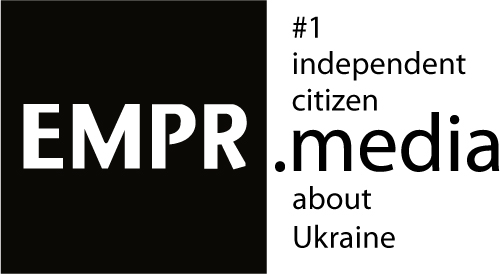
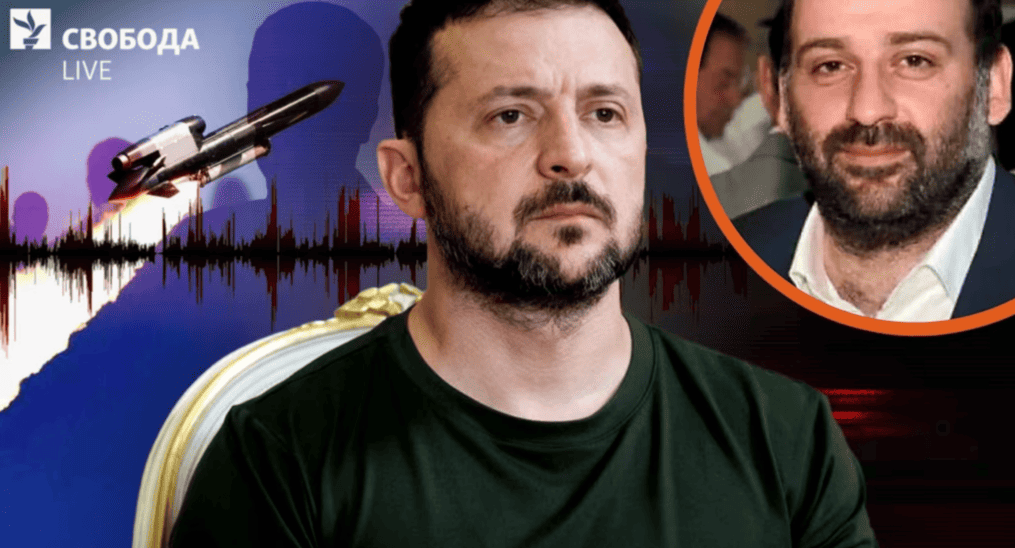




![Kyrylo Marsak in Olympic figure skating gear smiling on the ice at Milan-Cortina 2026, capturing pride, viral hopak atmosphere, and Ukraine energy. :contentReference[oaicite:4]{index=4}](https://empr.media/wp-content/uploads/2026/02/kyrylo-480x270.png)
![Volodymyr Kudrytskyi discusses energy missteps, shelters, and leadership decisions in Ukraine’s energy sector in a cold office interview.:contentReference[oaicite:2]{index=2}](https://empr.media/wp-content/uploads/2026/01/nardep-1-480x270.png)

